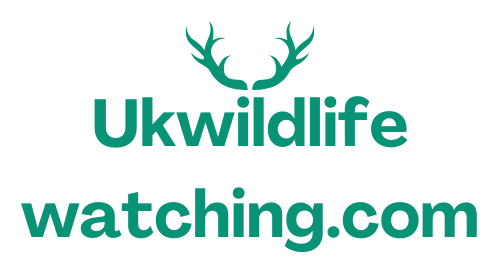Introduction: The Story of the African Wildlife Foundation
African Wildlife Foundation: In the heart of Africa, where vast savannahs stretch from grasslands to dense forests, a grave challenge has emerged. The wildlife that is the soul of this continent is facing unprecedented threats. Habitat destruction, poaching, and climate change have pushed iconic animals like elephants, rhinos, and lions to the brink of extinction. In this landscape, the African Wildlife Foundation (AWF) stands as a powerful defender. Since its inception, this organisation has not only been protecting wildlife but also empowering the communities that live alongside them.
AWF is not just another charity. It is a visionary movement that envisions a future where Africa’s wildlife and natural landscapes can become integral parts of a modern and prosperous continent. But what exactly does this organisation do? How is it funded? And most importantly, how can you contribute to this noble cause? Let’s find answers to these questions and learn how you can be a part of this important mission.
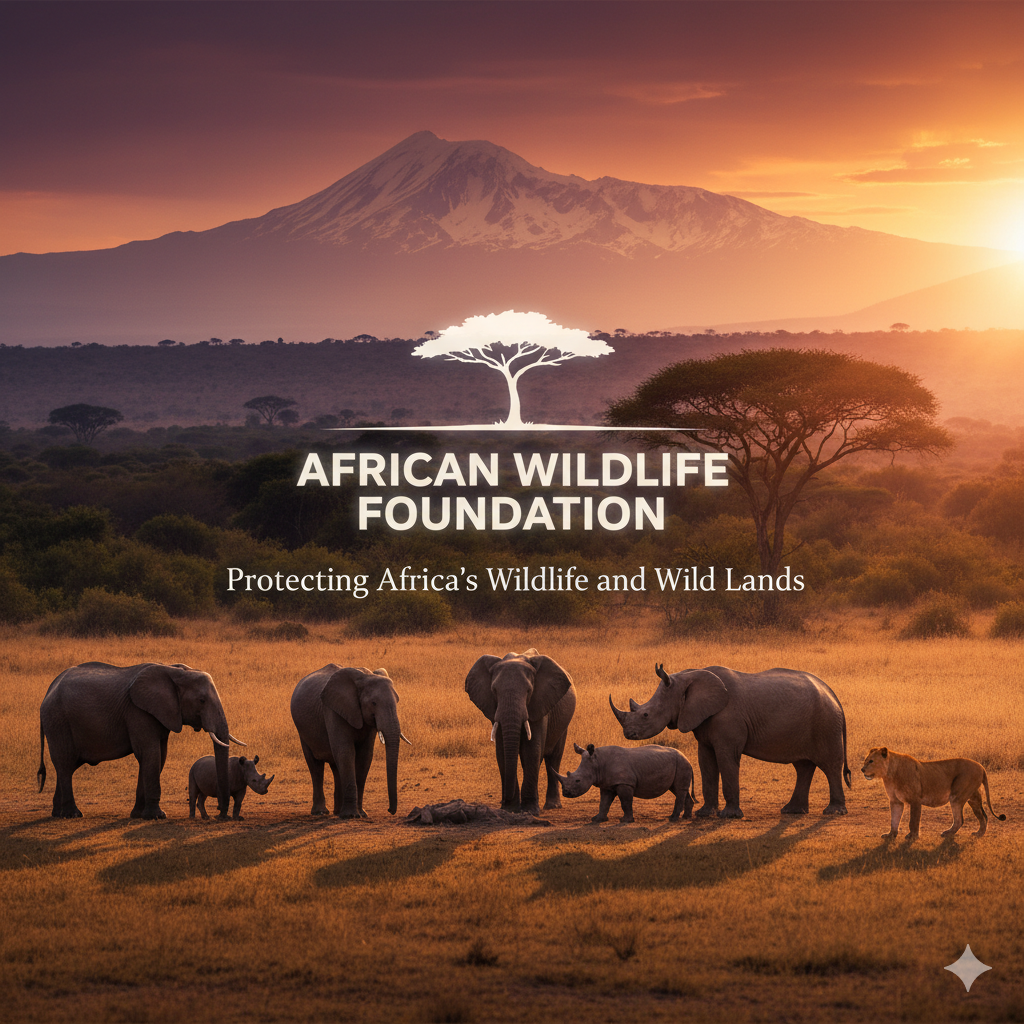
What does the African Wildlife Foundation do?
AWF’s work isn’t limited to saving animals; it’s based on a comprehensive and integrated approach that balances ecological conservation with human needs. It has been a leading player in this field since 1961, and its strategy is built on three pillars:
Protecting land – AWF identifies large “conservation landscapes” that are crucial to the future of Africa’s wildlife. These aren’t just national parks but vast areas that provide safe corridors for animals. They work with governments to establish and manage these areas, ensuring that vital habitats are protected forever.
Conserving Wildlife: This is the work that often receives the most attention. AWF focuses on the most threatened species, such as elephants, rhinos, lions, and great apes (gorillas and chimpanzees). The organisation’s work includes not only ranger patrols but also scientific research, such as tracking animal migrations using GPS collars and using specially trained sniffer dogs to combat poaching.
Empowering Communities: One of AWF’s most powerful strategies is understanding that conservation can only succeed when local people benefit from it. They train communities in sustainable livelihoods, such as ecotourism and wildlife-friendly agriculture. This helps reduce human-wildlife conflict and ensures that people view conservation as an opportunity rather than a burden. It also prepares future African conservation leaders through education and capacity-building.
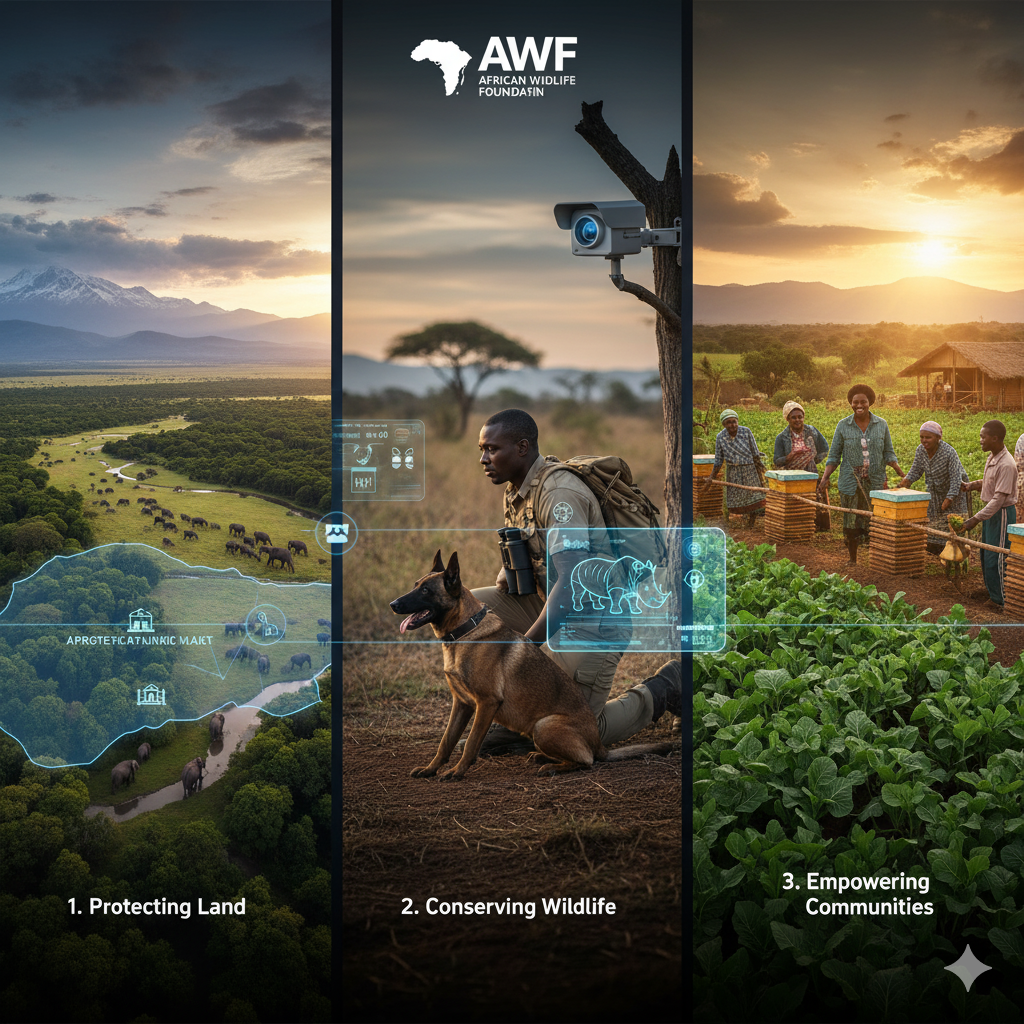
Who founded the African Wildlife Foundation?
African Wildlife Foundation was founded in 1961 by two visionaries, Russell E. Train and Nick Arundel. This was significant because many African countries were gaining independence at that time. Their vision was that wildlife conservation should be driven and managed by Africans themselves. Their initial goal was to help African nations develop the capacity to manage their natural resources, and they established training programmes to this end.
Russell E. Train was a renowned American environmental leader who later served as Administrator of the U.S. Environmental Protection Agency (EPA). But his contributions to AWF began early in his career, when he drew inspiration from his travels to Africa while working as a judge. His contributions to AWF in its early days are still remembered today through programmes like the “Train Education for Nature Program”, which works to educate the next generation of conservationists.
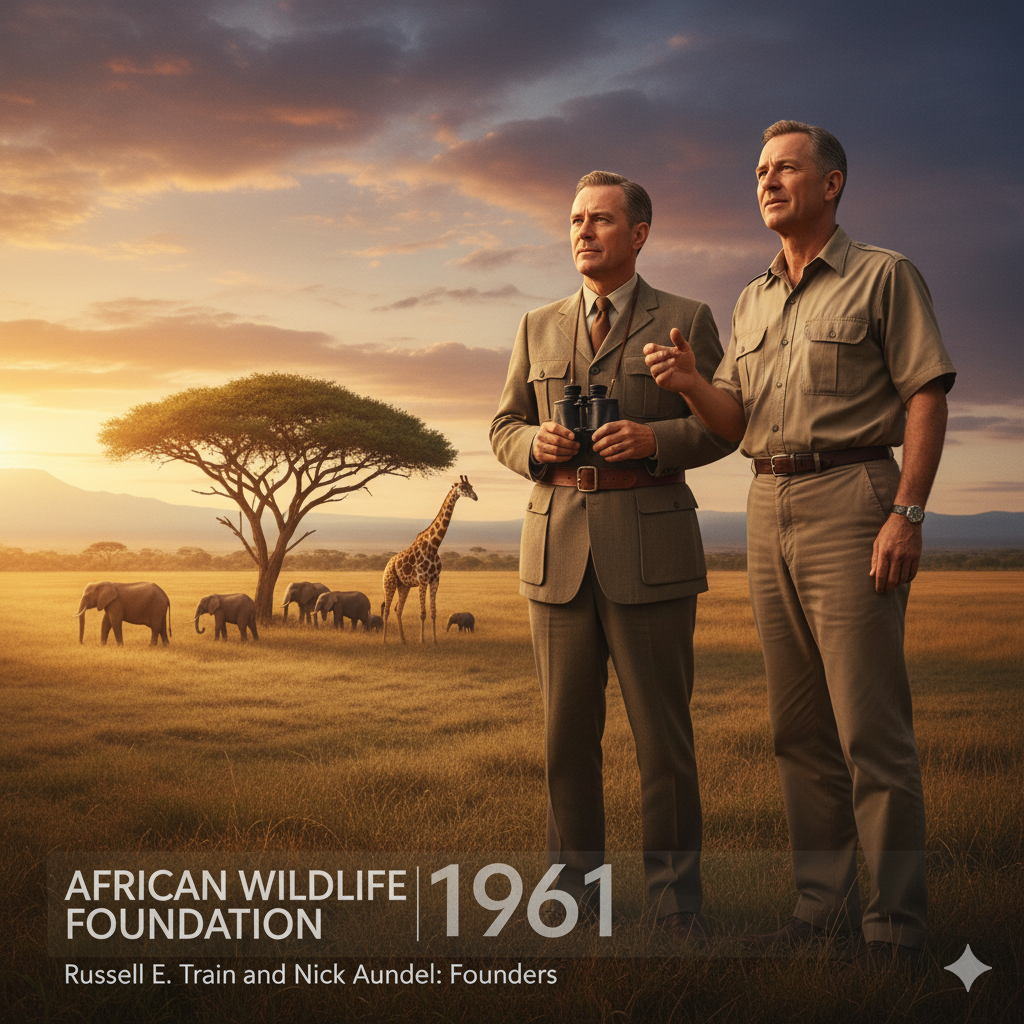
What is the vision of the African Wildlife Foundation?
AWF’s long-term goal is simple but ambitious: to ensure that Africa’s wildlife and natural landscapes continue to flourish. Their vision centres on “African-led conservation”. This means that conservation solutions must be developed by and for Africans, ensuring that nature can flourish alongside development.
Their strategy is based on three key principles:
leading for leadership: integrating conservation into every level of policymaking and social development.
Living with Wildlife: Creating conservation models that create opportunities for people, not at the expense of nature.
Caring for Wildlife: Running specific programmes to protect the most threatened species.
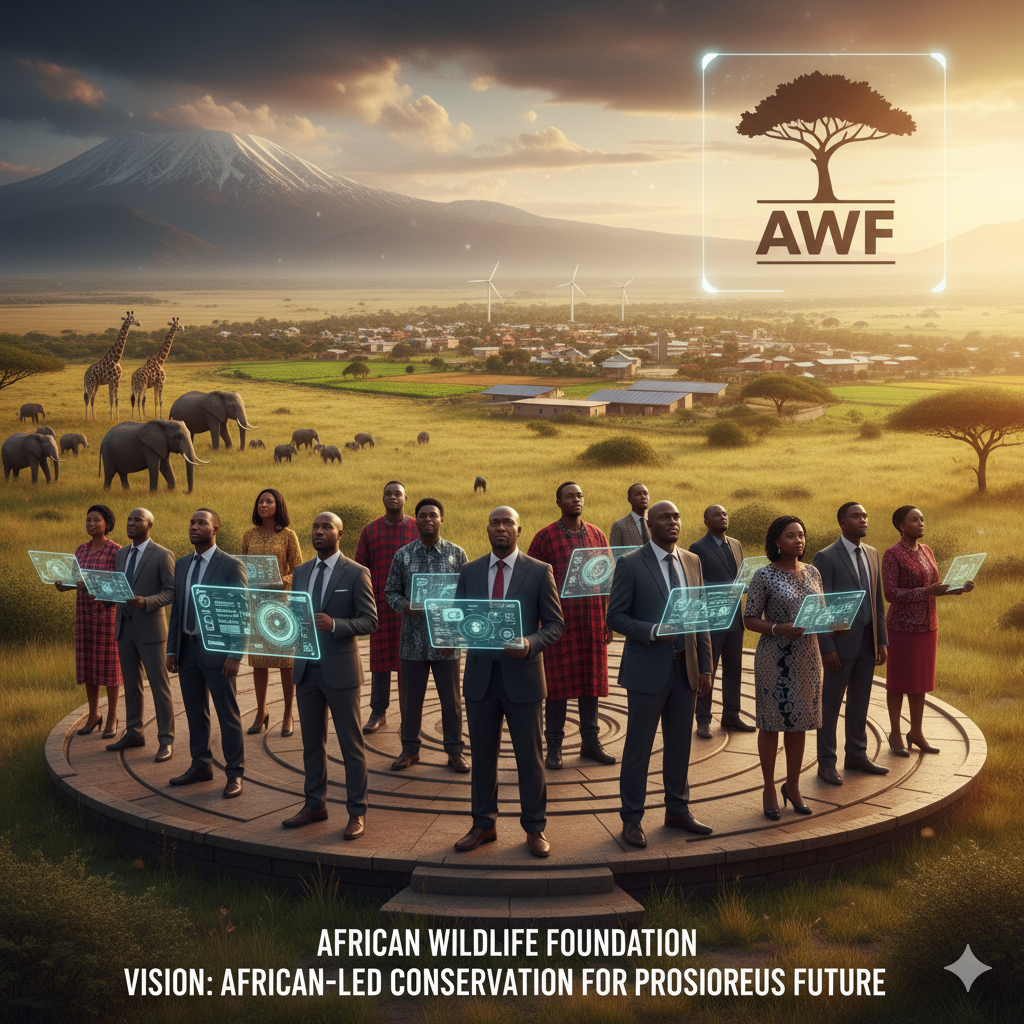
How does the African Wildlife Foundation receive funding?
African Wildlife Foundation is a transparent and reliable organisation that relies on diverse funding sources to advance its mission.
Individual Donations: Individual donors form a significant portion of the organisation’s income. Monthly donations and one-time contributions provide stable support for vital operations like staff salaries and ground patrols.
Corporate and Foundation Partnerships: AWF collaborates with numerous companies and foundations that believe in its mission. These partnerships provide funding through corporate social responsibility and help raise awareness for conservation.
Government Grants: AWF also receives grants from government agencies, such as USAID, for large-scale projects.
AWF maintains a high level of transparency in its financial management, and it spends most of its funds directly on its programmes, as reflected in its financial documents.
How can you support African wildlife?
Protecting African wildlife isn’t just AWF’s job; it’s a global responsibility. You can be part of this effort in a variety of ways:
Donate directly: donating directly to AWF is the most direct way. Every dollar goes directly to anti-poaching units, equipment for rangers, and community programmes. You can make a one-time donation or become a monthly supporter.
Shop responsibly: you can help by being a conscious consumer. Look for products that are sustainably produced, such as “shade-grown coffee”, which helps preserve wildlife habitats.
Travel responsibly: if you get the opportunity to travel to Africa, choose ecotourism operators that support conservation efforts. Your tourism dollars go directly to the communities and parks that protect wildlife.
Raise awareness: tell others about AWF’s work. Share their stories on social media and educate your friends and family. Raising awareness is a powerful tool that can inspire collective action.
Conclusion: Be Part of the Solution.
The African Wildlife Foundation‘s true strength lies in its proven strategies, and your support multiplies its impact. Whether you contribute through donations, thoughtful shopping, or responsible travelling, every action counts. The fate of wildlife is in our hands. Come, be a part of this great work and ensure that Africa’s wildlife continues to thrive.
